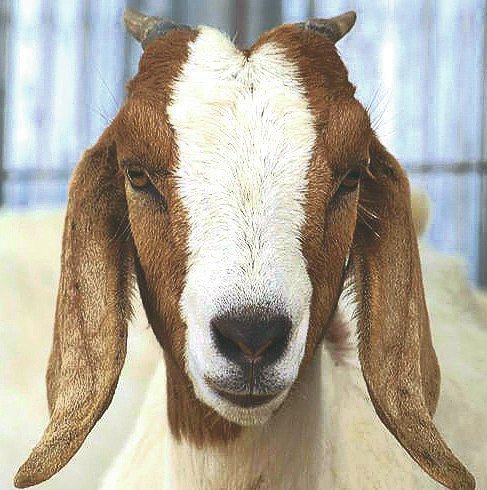FAYETTEVILLE -- A herd of goats will start clearing invasive plant species in Wilson Park next week.
No kidding.
At A Glance
The following invasive plant species can be found throughout Northwest Arkansas:
• Bradford and Callery pears: Deciduous trees with white, five-petaled flowers
• Bush honeysuckle: Shrub featuring braided bark, pairs of sweet-smelling, white or yellow trumpet-shaped flowers and red berries
• Chinese and European privet: Semi-evergreen to evergreen bushes with dark blue to black berries
• English ivy: Evergreen climbing vine featuring dark green leaves with white veins
• Kudzu: Semi-woody climbing vine with three broad leaflets
• Multiflora rose: Thorny, perennial shrub with clusters of white to pink flowers
• Winter creeper: Perennial vine with dark green, oval, slightly toothed leaves
Sources: U.S. National Park Service, Fayetteville Natural Heritage Association, Fayetteville in Bloom and Washington County Extension Service
The goats' first day on the job is Tuesday.
Connie Rieper-Estes, owner of Greedy Goats of Northwest Arkansas, plans to release a dozen boer and nubian goats onto an overgrown hill in the southwest corner of the park.
The bovids will spend seven hours a day for up to two weeks nibbling on noxious plants such as poison ivy, privet and bush honeysuckle.
"We've been doing invasive species management and habitat restoration in our parks for many years," Kristina Jones, volunteer and community programs coordinator for the Parks and Recreation Department, said Friday. "As we gain more park lands, it's just going to take more effort and innovative ways to manage the spread of these plants."
Volunteers typically have used loppers and chain saws to cut down invasive plants, then painted the stumps with a glyphosate herbicide, such as Roundup.
Jones said the goats provide a more eco-friendly alternative. They can access dense thickets of plants without getting poison ivy or disturbing soil and causing erosion like humans and machinery might.
"Goats are better than poison," Rieper-Estes said. "They take a little bit longer, but, if you're really green and eco-conscious, goats are the way to go.
"They are the happiest yard crew you'll ever see," she added.
Fayetteville isn't the first place goats have been used for vegetation control.
The Boston Parks and Recreation Department deployed a herd in historic Hyde Park this year. Goats, sheep and a llama attacked unwanted vegetation at O'Hare International Airport in Chicago. And goats have been munching kudzu in Knoxville, Tenn., for years.
"Kudzu, especially, it grows with sunlight, so, if you eat all the leaves, then you're basically shrinking the root ball," Chad Weth, deputy director of the Knoxville Public Services Department, said Friday. "The more you bring the goats back, the more that root ball shrinks, until you hopefully get it down to nothing.
"It's very effective, but, just like herbicides, it has to be a continual treatment, potentially multiple summers if you really want to get it completely eradicated."
The Knoxville goats were seasonal labor at first -- paid for with a grant from the organization Keep Knoxville Beautiful. This year, the city received money through its annual operating budget for "invasive abatement."
"Some of it's for spraying. Some of it's for goats," Weth said.
Greedy Goats of Northwest Arkansas is volunteering its services in Wilson Park through the city's adopt-a-park program.
"We're hoping the park likes it and would like to hire us in the future," Rieper-Estes said.
The goats will be contained in an electric fence, and Rieper-Estes or her husband, Jason, will be on-site at all times to prevent the animals from getting loose.
The public is welcome to come watch the goats work.
Peter Nierengarten, Fayetteville sustainability and resilience director, said goats could be included in a plan for combating invasive plant species that's being developed.
"We're trying to take a broad look at ... beating back the invasive species we have currently and preventing the spread of new ones."
The invasive species removal plan is due by the end of the year.
NW News on 06/20/2015

